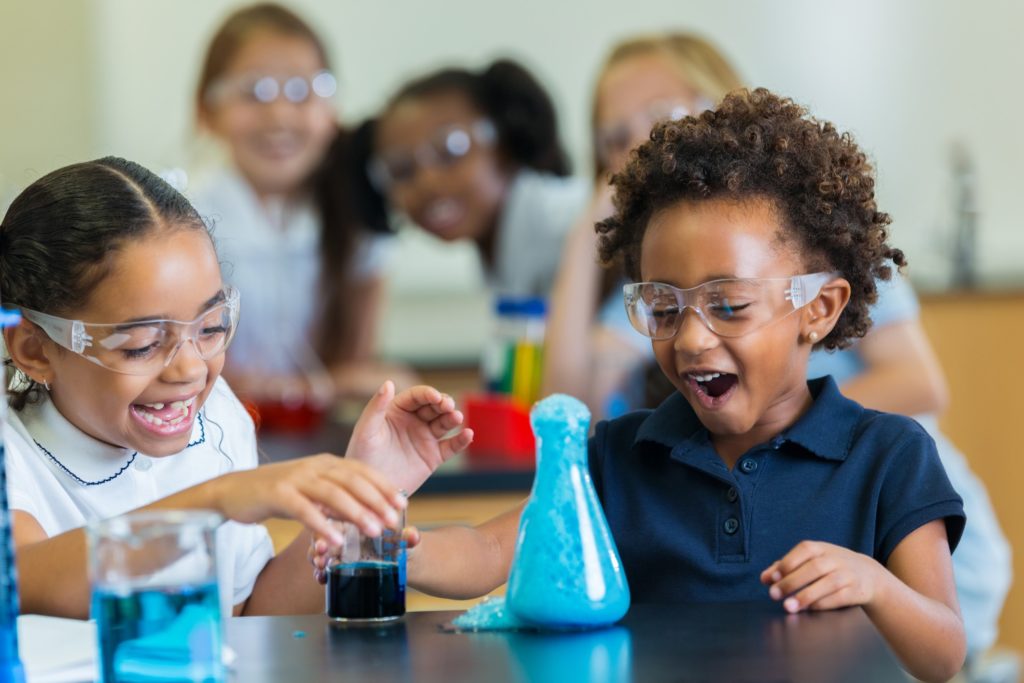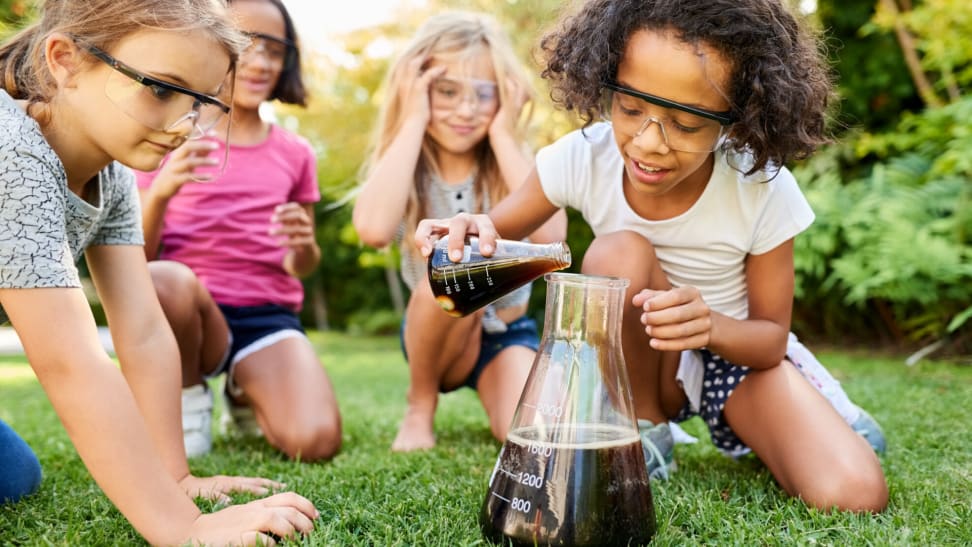We’re switching gears for a bit here because something we feel pretty darn passionate about is teaching kids science. And think about it, learning science as a kid is super cool because it’s usually in the form of awesome experiments and if you’re a ‘90s kid, it was all about watching Bill Nye (Bill! Bill! Bill!) But aside from all the cool science-y things kids will learn, they also learn a ton of life lessons, and we think that is pretty amazing. Here are just a few ways science teaches life skills!
Safety First
If it wasn’t for safety in a science lab, we would probably all be missing some fingers, eyebrows, and maybe even patches of our own hair so safety is key to success in the lab, and what does that teach kids while they’re out and about doing kid stuff? Safety is important and if we aren’t being safe, there will be consequences. We think that’s a pretty good life lesson.

Ask Questions
Without questions, without curiosity, there would be no science. None. Science encourages kids to wonder about things and ask questions. Kids are naturally curious about the world around them and until they start asking questions and experiencing things, they’ll never learn anything new and exciting about this big world they’re a part of.
Communication
This is something a lot of adults struggle with after years of life experience, and it can be a tough cycle to break, but kids that are studying science are having to communicate constantly whether it’s in-person or via record-keeping and perfecting the art of any type of communication is a win in our books.

Planning
You can’t just do science willy-nilly with no plans in place, in fact, you have to gather resources, gather tools, learn about certain concepts, collaborate with your team, schedule time to complete your project, consider backup plans, etc. so a certain amount of planning is vital when conducting science experiments no matter how simple or complex they may be. So what do kiddos learn from this? The importance of planning! Then when big events occur in life, as they do, they won’t seem so scary and overwhelming.
Inevitable Failure
As adults, we know that sometimes we just plain fail, and this can feel like a major punch to the gut. And we aren’t saying we should be setting kids up for failure, but sometimes while conducting a science experiment the volcano just won’t shoot “lava” up into the air, or the egg breaks in the parachute we made, and that’s okay because it’s back to the drawing board. These steps are vital to deal with failure both in and outside of the lab and the sooner kids understand this, the better. Imagine a world full of people that don’t give up after one setback, people that are just able to regroup and come back with a fresh idea? That sounds pretty amazing to us.